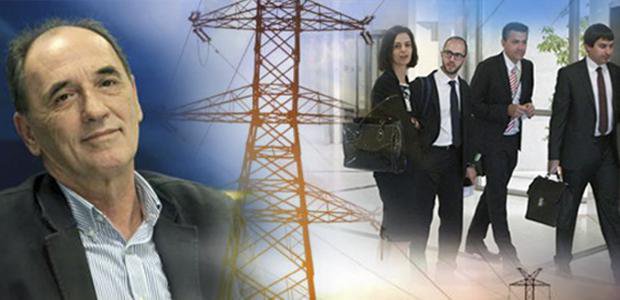The energy-sector measures to be included in the updated bailout following the second review, now believed to be approaching completion, appear to be far softer and more favorable for the government than had been feared during months of negotiations.
A staff level agreement brought to Athens this week by the lender representatives for fine tuning of the basics ahead of a finalized agreement is definitely relatively softer compared to previous lender demands, which offers greater leeway for the energy ministry’s policies.
The Syriza party, the coalition’s chief partner, should have far less trouble getting approval from its MPs for the measures contained in the agreement.
However, legislation needed for an increase of electricity amounts to be offered by the state-controlled power utility PPC through NOME auctions will probably prove to be trickiest energy-sector challenge for the government. NOME auctions were introduced last October to offer independent traders access to PPC’s low-cost carbon-fired and hydropower sources.
Information made available on the staff level agreement indicates that, at this stage, PPC will be required to place for sale less than the 40 percent amount of its carbon-fired production capacity originally demanded.
A binding deadline for a market test, to determine the level of investor interest in the utility’s carbon-fired units, will not be included in the package. It is believed the Greek government could present a plan in June for an agreement with the European Commisson, one of the country’s three lenders, by November. At this stage, no direct reference has been made demanding the addition of hydropower units to the PPC sale package. This may occur investor interest in the utility’s carbon-fiired units is deemed insufficient.
A term for NOME electricity amount increases will be included in the second review’s agreement. However, these amounts will be lower than had been originally demanded. The amount will be set at 16 percent for 2017, 19 percent for 2018 and 22 percent for 2019. Earlier in the negotiations, the lenders demanded 20 percent for 2017 and 33 percent for 2018 and 2019. Also, allowances will be offered for reductions of the new amounts if progress is achieved in the demand for PPC carbon-fired unit sales.
The staff level agreement does not include references forbidding enterprises that are indirectly associated with the Greek State from acquiring PPC units.
As for the natural gas market, the Greek government will need to present a road map of necessary revisions by September. One of the objectives here will be to avoid conflicts of interest. Though DEPA’s (Public Gas Corporation) involvement in the EPA gas supply firms is an issue, strict demands have not been set.
The privatization of a 66 percent stake of DESFA, the natural gas grid operator, will need to be completed by the end of this year.
The updated bailout will also include strict timelines for the completion of the electricity market’s target model. Concerns over retail electricity market issues, such as PPC’s hefty unpaid receivables and the increase in cases of electricity theft, are also referenced.





